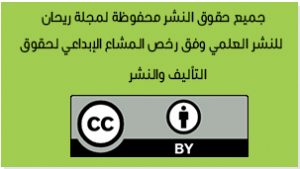النسخ وأنواعه في الشريعة الإسلامية
Abrogation in Islamic Sharia is an important topic.A human being cannot separate the halal from the haram and the permissible deeds from the haram deeds until he/she learns the superseding in Islamic Sharia.For this reason, the scholars have made it a condition for muftis and mujtahids that they should identify Nasikh(abrogating)and Mansukh(abrogated); In order not to issue a fatwa.Scholars should know the types of them.
The purpose this research article is to know the truth of the abrogation in Islamic sharia, to identify the types of Quranic and Hadiths abrogation, to recognize the types of abrogation based on the sharia, and to know the types of abrogation based on reliability.
In this article, we will discuss the concept of abrogation, the importance of recognizing Nasikh(abrogating)and Mansukh(abrogated), the wisdom behind Nasikh(abrogating)and Mansukh(abrogated), recognizing the types of abrogation, types of abrogation of the Holy Qur’an, types of abrogation of hadiths, and types of abrogation based on the Sharia.
From the discussion of this research article, it was concluded that the version is actually two orders higher than the two revelations.To be, or to read the word of revelation, or to raise both the word and the order with one reason from both revelations.The important types of Nasikh(abrogating)and Mansukh(abrogated are as follows: Quran abrogation with Quran, Quran abrogation with hadiths, hadiths abrogation with Quran and hadiths, and the abrogation of fard(obligatory), Wajib(obligatory), Mubah(permissible), Makruh(abominable), and haram to each other.
Key words: Abrogation, Abrogating, Abrogated, Last, Previous, Change.
Dr.Mohmammad Ibrahim HANIF, Associate Professor, Member of the academic staff Islamic Culture Department, Faculty of Sharia, Nangarhar University – AFGHANISTAN
Nimatullah MADANI, Associate Professor, Member of the academic staff Islamic Culture Department, Faculty of Sharia, Nangarhar University – AFGHANISTAN
Khairullah SHINWARI, Lecturer, Member of the academic staff Islamic Culture Department Faculty of Sharia Syed Jamaluddin Afghan University – AFGHANISTAN
 مجلة ريحان للنشر العلمي مجلة علمية، محكمة، شهرية، مفتوحة الوصول
مجلة ريحان للنشر العلمي مجلة علمية، محكمة، شهرية، مفتوحة الوصول
